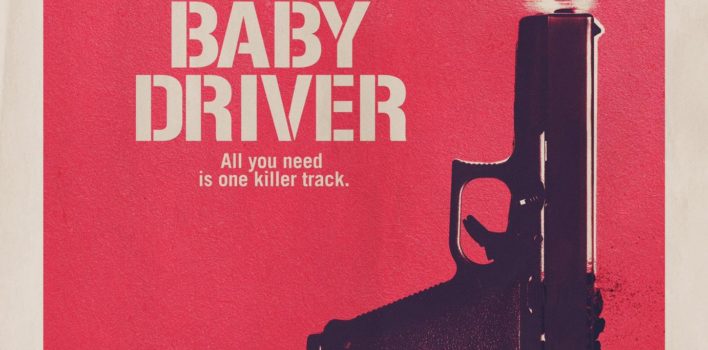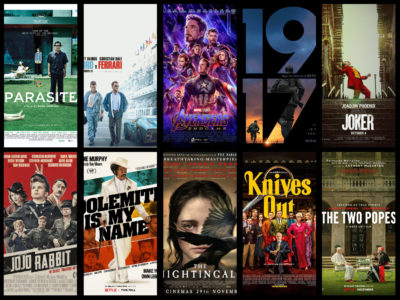#139 – Baby Driver and Subversive Cultural Privilege
On this episode of the Reel World Theology Podcast:
 It’s that wonderful time of the year when we get to enjoy a new Edgar Wright film! We take some time talking about what it is Wright brings to his films and, in turn, what brought us to Baby Driver. In a movie that most people are talking about as purely entertainment and fun, what did we see? Was there something else there than fast cars and genre bending? We take a look and even surprise ourselves a little.
It’s that wonderful time of the year when we get to enjoy a new Edgar Wright film! We take some time talking about what it is Wright brings to his films and, in turn, what brought us to Baby Driver. In a movie that most people are talking about as purely entertainment and fun, what did we see? Was there something else there than fast cars and genre bending? We take a look and even surprise ourselves a little.
Download Episode 139 Here:
Reel World Theology #139 – Baby Driver and Subversive Cultural Privilege
Reel World Theology on Stitcher
Reel World Theology on FeedBurner
Reel World Theology on Google Play
This episode’s panel included Ryan Parker and Blake Collier:
Ryan Parker (@jryanparker)
Pop-Theology (@PopTheology)
Blake Collier (@SacredLetDown)
Oh! The Horror Series
The Body|The Blood Podcast (@TheBodyTheBlood)
Blake I Collier Website
Podcast Notes and Links:
Reel World Theology Discussion Group
Baby Driver at IMDB
Baby Driver at Rotten Tomatoes
Baby Driver Review at Reel World Theology
Born With Music Coming In My Ears at Pop Theology
Baby Driver Review at Reel Spirituality
10 Movies That Influenced Baby Driver, Pt.1 at Slash Film
10 Movies That Influenced Baby Driver, Pt.2 at Slash Film








You guys say “nobody is talking about” the racial angle to Baby’s moderate consequences. But critic Daniel Feinberg already did:
https://www.facebook.com/TheFienPrint/posts/1427262677320042
I also thought the movie ignored how many “felony murder” charges he’d be facing (and likely convicted of).
Many heist films have happy endings in which the protagonist gets away with the loot. Baby Driver is atypical in that he actually gets caught, convicted and imprisoned. But you’re right that it’s still framed as a happy ending which simply skips over those consequences. Get Out had an unambiguously happy ending (the original one was darker), almost as a relief from the horror that came earlier. I enjoyed the movie a lot, but I would like to recommend Sam Lively’s reviews, which dings the movie for falling short of Peele’s stated ambitions (which might have involved some more introspection) in favor of simply making a conventional* horror comedy.
*His point of comparison is Charlie Kaufman, grousing that Peele settles at the level of Woody Allen & Spike Lee.
Wright is not merely white, he’s English. This is the first film he’s made in America, and like Fienberg I don’t think he’s thought too much about American society when making the film.
Of the 30 songs on the soundtrack, at least 16 appear to be by white artists. I find the whole concept of “appropriation” to be rather silly. It’s the nature of culture to be imitated. Is it “appropriation” if someone uses English despite lacking any connection to the Frisians? To use electrified instrumentation if it wasn’t invented in your home country? In your case, to be a Christian despite not being from the Middle East? And what do you mean by “appropriate Edgar Wright’s film”? If you made your own similar film it might be considered an homage or ripoff, but you’re not making any films at all.
I notice you consistently refer to Baby as a “white straight male” while only actually focusing on the first of those. How might the story have been different if instead one or both of the latter were changed?
I sympathize with those who couldn’t finish Mad Men. I did, but I was forcing myself the whole way through as a sort of pop-culture “homework”.
I think the standout character in the film is Edgar Wright, and I’m fine with that.
Thanks for checking out the episode!
Also, thanks for the link. I think we all figured there was SOMEONE who made note of the cultural consequences, but, speaking hyperbolically, it was definitely not at the top of most notable reviews. Again, it’s good someone is!
So, to be clear, by your examination, “cultural appropriation” isn’t a thing, like, ever?
Man, it would have been awesome to dive down those other trails of what the film would have looked like if Baby was not either straight nor male, but, that is the constraint of not recording a three hour podcast. However, that IS what the facebook discussion group is for! I would love to hear people’s theories!
I am also perfectly fine with Wright being the standout in his film. He is one of the only directors that I can tell it was him who made the film– and I love it.
“Cultural appropriation” is also known as “culture”. Pants were borrowed by eastern roman civilization from horse nomads, and the latin alphabet borrowed from Romans. I use both despite being neither a Roman nor a horse nomad.